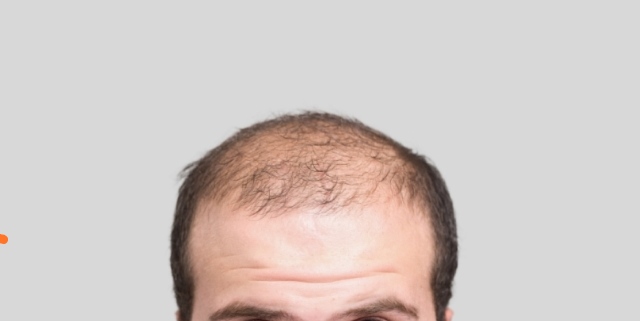Why does the skin scratches after bath even though you use disinfectant on the water?
What Is a Chlorine Rash, and How Is It Treated?
What is a chlorine rash?
Chlorine is a component that pool proprietors use to sanitize water, making it more secure to swim in it or to get in a hot tub. On account of its capacities as a strong sanitizer, it's likewise added to cleaning arrangements .
While chlorine has a great deal of advantages, in the event that you love to swim, successive openness to it can have a few adverse consequences. The component can be drying to skin and prompt aggravation, regardless of whether you've recently been swimming in chlorine and haven't had skin issues . Read Skin Care Routine for Dry Skin .
Assuming you get a chlorine rash subsequent to swimming, you're not really adversely affected by chlorine, only touchy to it. Luckily, there are ways of treating chlorine rash without abstaining from swimming totally .
What are the side effects?
Chlorine rash can make the skin tingle in the wake of swimming . Different manifestations can include :
- irritated, red rash
- scaling or crusting
- little knocks or hives
- enlarged or delicate skin
Your eyes may likewise be disturbed from chlorine openness. Now and then chlorine can likewise be bothering to the respiratory plot. You might see you habitually hack and sniffle when you're presented to chlorine . Read how to treat eczema .
How could this be not the same as swimmer's tingle ?
Both a chlorine rash and swimmer's itchare swimming-related rashes. Nonetheless, a chlorine rash is a response to chlorine openness while swimmer's tingle is brought about by infinitesimal parasites that live in new water.
These parasites are set free from snails into the water. At the point when a swimmer interacts with them, the parasites can tunnel into the skin. The outcome is a rash that can cause pimple-like reactions or little pimples. The clinical name for this condition is "cercarial dermatitis ."
Distinguishing the contrast between a chlorine rash and swimmer's tingle regularly relies upon where you've been swimming. Pools have chlorine added to them, while new water doesn't. On the off chance that a pool is all around kept up with and utilizes the suitable measure of chlorine, it shouldn't have these parasites .
You're bound to encounter swimmer's tingle when swimming in new water or salt water, particularly the shallow water by a coastline.
What causes this ?
Not all individuals who swim experience a chlorine rash. Individuals regularly experience chlorine rash connected with rehashed openness to chlorine. The safe framework might distinguish the chlorine as a "unfamiliar intruder" like a microorganisms or infection and become kindled and bothered. The chlorine can likewise eliminate the normal oils on the skin, making it become dry .
Regardless of whether you wash or flush off after openness , some component of the chlorine stays on your skin. The proceeded with openness can cause delayed bothering. This implies those in danger for responses include :
lifeguards
proficient cleaners
swimmers
Now and again a pool's guardians might add a lot of chlorine to the pool. An overabundance of openness to chlorine can be bothering .
Treatment
You can for the most part treat a chlorine rash with over-the-counter (OTC) items. This incorporates corticosteroid creams, like hydrocortisone. In any case, most specialists don't suggest putting hydrocortisone cream on the face as it can thin the skin or get in the mouth and eyes .
Assuming you experience hives, you can apply a diphenhydramine cream or take a prescription that contains diphenhydramine, such as Benadryl. You can likewise buy body washes or creams that eliminate chlorine and are intended to mitigate the skin. Models include :
DermaSwim Pro Pre-Swimming Lotion
Pre-Swim Aqua Therapy Chlorine Neutralizing Body Lotion
SwimSpray Chlorine Removal Spray
TRISWIM Chlorine Removal Body Wash
Keep away from salves that are exceptionally perfumed, as they can add to the expected disturbance from chlorine. In a perfect world, these effective applications will assist with diminishing the frequency of chlorine rash and keep you swimming and cleaning all the more serenely .
When to see a specialist
Assuming you have a severe allergic response, for example, hives that will not disappear or trouble breathing, you should look for crisis clinical treatment .
A clinical trained professional - an allergist - can assist with diagnosing and treat further issues connected with chlorine rash. This is valid for the people who experience a chlorine rash however plan to proceed with their openness, like swimmers .
On the off chance that your chlorine rash doesn't react to OTC medicines, you should see an allergist. The allergist can endorse more grounded medicines, for example, solution corticosteroid creams .
Ways to forestall a chlorine rash
A portion of the ways of forestalling a chlorine rash include :
Washing up or shower when you're presented to chlorine. Assuming you apply moisturizers to skin that has chlorine present, it's simply liable to bother it more.
Applying oil jam, such as Vaseline, to regions that are disturbed prior to going into a pool or doing cleaning. This gives a defensive boundary between your skin and the water .
Another choice is to have some time off from a pool or cleaning arrangement that contains chlorine for some time and permit the skin to mend .
Rehashed openness when you have a chlorine rash will probably just bother the skin further .
Source : Healthline





Comments
Post a Comment